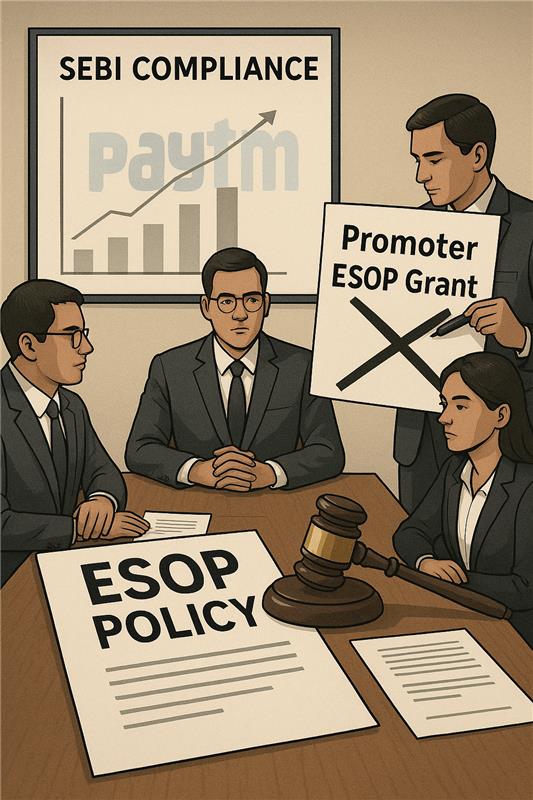
In a recent ruling of the case PayPal Payments Private Limited v. Financial Intelligence Unit India & Anr. W.P.(C) 138/2021, PayPal Payments Private limited (“PayPal”) argued that its business model clearly establishes that it should not be considered a ‘payment system operator’ or a ‘reporting entity’ under the Prevention of Money Laundering Act, 2002 (“PMLA”). Consequently, they contended that they should not be subject to the provisions of the PMLA. However, the esteemed High Court of Delhi (the “Court”) did not concur with PayPal’s argument and dismissed it. The Court’s perspective was that limiting the term ‘payment system’ only to entities directly involved in fund handling or transfer would hinder and obstruct the deployment of crucial Anti-Money Laundering (AML) measures and impede data collection and analysis, which are integral to these efforts.
The judgment crucially emphasized that considering the objectives of the PMLA and the nature of the activities it seeks to regulate and penalize, there is no legal basis to interpret Section 2(1)(rb) of the PMLA which defines ‘payment system’ in a way that excludes entities like PayPal from its ambit. The ruling highlights the significance of encompassing a broader range of entities under the definition of payment systems to effectively combat money laundering and protect the financial system’s integrity.
BACKGROUND
Following a sequence of communications spanning from 2018 to 2020 between PayPal and Financial Intelligence Unit India (FIU-IND), the FIU-IND eventually issued an order against PayPal on 17th day of December, 2020 holding it to be ‘reporting entity’ under the PMLA. This order came with the possibility of imposing monetary penalties due to PayPal’s failure to comply with the reporting obligations under the Prevention of Money Laundering (Maintenance of Records) Rules 2005. PayPal challenged the order, asserting that it does not function as a ‘payment system operator’ under the PMLA. Instead, it contended that it serves as a technological interface enabling export-related transactions between Indian exporters and overseas buyers and does not engage in actual handling of funds. PayPal relied on a stance taken by the Reserve Bank of India (RBI) in a separate proceeding, where RBI affirmed that PayPal is not a payment system operator. This claim was based on the argument that the definition of a payment system under the Payment and Settlement System Act, 2007 (“PSS Act”) aligns with the provisions of the PMLA.
On 12 January 2021, after considering detailed submissions addressed by respective sides, the Court directed to the Secretary, Ministry of Finance to constitute a Committee with a nominee of the RBI and the Ministry of Finance, to clarify their position as to whether companies like PayPal who claim to be facilitators of monetary transactions, both in foreign exchange and in Indian Rupees, ought to be categorized as “payment system operators” and hence “reporting entities” under the PMLA.
In terms of the ultimate conclusions as so recorded by the committee in its report it has essentially held that entities like PayPal should be held to be covered under PMLA and that they are liable to be categorized as payment system operators.
IMPORTANT ISSUES RAISED
Whether the definition of payment system under PSS Act is identical to the definition the same under PMLA?
Whether an Online Payment Gateway Service Provider (“OPGSP”) like PayPal could be said to be a payment system under PMLA?
CONTENTIONS
On behalf of PayPal (Petitioner):
- PayPal’s principal argument was that it should not be considered a reporting entity under the PMLA because it operates as an “Online Payment Gateway Service Provider” and strictly follows RBI’s guidelines for OPGSPs.
- PayPal claimed that it does not handle funds directly, as the money is routed through AD Partner Banks that are reporting entities under the PMLA. PayPal sees itself as a facilitator, linking Indian exporters and foreign buyers for seamless fund transfers, and argues it should not be classified as a reporting entity under the PMLA. It was also firmly asserted that PayPal only provides services to various Indian exporters by offering them a convenient technological interface for the receipt of funds from overseas buyers.
- The above position was duly recognized by RBI in Abhijit Mishra vs Reserve Bank of India W.P. (C) No. 7007 of 2019 when it averred that PayPal cannot be recognized to be reporting entity as defined under the PSS Act and that PayPal was not operating or participating in a payment system. Therefore, it should not be recognized as a payment system operator under the PMLA since both statutes define ‘payment system’ identically, except for the exclusion of stock exchanges in the PMLA definition.
- PayPal argued that its business model does not involve clearing, payment, or settlement services, which are essential for a payment system to be covered under the PMLA. The functions performed by PayPal does not include handling funds between Indian exporters and overseas buyers, making it outside the definition of a payment system operator under Section 2(1)(rb) of the PMLA.
- Reliance was also placed on the case of Lotus Pay Solutions (P) Ltd. v. Union of India 2022 SCC OnLine Del 2939 wherein the Court had determined that OPGSPs like PayPal do not handle funds; rather, their role is solely focused on providing technological infrastructure to facilitate the processing of online payment transactions. This case had clearly recognized the distinction between a payment system and OPGSPs.
- It was further contended that that penal statutes like the PMLA should be strictly interpreted, and its provisions should not be expansively construed and to support this argument, reference place on the legal position laid out in the case of Glaxo Laboratories (I) Ltd. vs. Presiding Officer (1984) 1 SCC 1.
- While PayPal was willing to cooperate with FIU-IND in countering terror financing, it maintained that it could not be forced to accept classification as a reporting entity, as the statute did not categorize OPGSPs as part of a payment system or payment system operators.
On behalf of FIU-IND (Respondent):
- It was submitted that PayPal’s challenge disregards established principles of statutory interpretation. The fact that the PMLA independently defines ‘payment system’ and ‘payment system operator’ shows the legislative intent to confer a different and distinct meaning to the term “payment system” for the PMLA’s purposes.
- It was argued that PayPal principally discharges a role of facilitating payment transactions and thus the technological platform created by PayPal would clearly fall within the ambit of a “payment system” as defined under the PMLA. PayPal’s lack of direct engagement in clearing or settlement activities doesn’t change its status as a system involving payment services. Stroud’s Judicial Dictionary for the definition of “enable” and the interpretation on the term “involved” in Section 3(2) of the Special Court Act by the Supreme Court in S. Mehta & Ors. vs. Custodian, Nariman Bhavan (2011) 6 SCC 220 was cited to support argument on the rules of interpretation.
- It was submitted that PayPal’s failure to register as a reporting entity continues to harm vital security and law enforcement interests. FIU-IND is deprived of full transactional information, which was not shared by PayPal even with its nodal bank.
- It was argued that if Section 2(1)(rb) of PMLA were to be interpreted and accepted on lines advocated by the petitioner, it would clearly hinder the anti money-laundering and counterterrorist financing measures which India seeks to adopt. Reliance was placed on the rule of strict construction of regulatory statutes, as established by the Supreme Court in Balram Kumawat vs. UOI AIR 2003 SC 3266, that allows for interpretation according to current meanings and application to cover advancements in science and technology not known at the time of passing the statute. Another Supreme Court’s case of Baldeo Krishna Sahi v. Shipping Corp of India Ltd (1987) 4 SCC 361, 366 was cited where it is stated that statutes should not be interpreted in a way that promotes mischief or creates gaps in their application.
On behalf of RBI
- We would like to also analyze RBI’s arguments here, which stated that, the affidavit in the matter of Abhijit Mishra cannot be viewed in same context as that of the present case and the said affidavit shall be read and appreciated in the context of PSS Act, the statute which formed the subject matter of those proceedings. It is clear that the object of the PMLA and PSS Act is clearly distinct and different and neither the affidavit of RBI filed in Abhijit Mishra, nor the mere fact that the expression “payment system” is identically defined under the PSS Act and PMLA would lend credence to the submissions addressed on behalf of PayPal. The expression “payment system” as defined under the PSS Act cannot be mechanically applied or imputed while understanding the scope and intent of the legislature in seeking to regulate the activities of a “payment system operator” under the PMLA.
JUDGEMENT
On the question of the similarities between the definitions of ‘payment system’ in the PSS Act and the PMLA
The Court begins by noting that the PSS Act is applicable to payment systems that directly handle and retain funds received from customers and the various aspects connected therewith including the settlement and netting of such funds, which also includes intermediaries connecting customers and beneficiaries. The Court recognizes that the PSS Act and RBI circulars specifically target entities engaged in fund handling and movement, such as Payment Aggregators (PAs) and Authorized Dealers (AD Banks). The PSS Act does not appear to control technology platforms, interfaces and facilitators, who though not directly concerned with the handling of funds, may yet constitute an intermediary in the movement of funds.
However, the Court emphasizes that the electronic remittance of funds involves various sub-elements and entities collaborating to facilitate transactions. Even though some entities, like Online Payment Gateway Service Providers (OPGSPs), may not be covered under the PSS Act, their role in the ecosystem cannot be ignored. The Court states that legislative measures may not necessarily cover all aspects of an economic activity and that the absence of OPGSPs under the PSS Act is not sufficient to reject FIU-IND’s contention.
The Court further notes that interpreting the term “payment system” in the PMLA should be done in the context of the legislative intent and policy behind the PMLA, not just based on how it is treated under the PSS Act. The Court emphasizes that any other approach would violate accepted principles of statutory interpretation.
The Court rejected PayPal’s argument that since it was not considered a payment system operator under the PSS Act, it should be excluded from the scope of the PMLA. The Court also dismissed the argument that the similarity in the definition clause of a payment system (under section 2(1)(i) of the PSS Act and section 2(1) (rb) of PMLA) between the two enactments led to PayPal being exempt from Section 2(1)(rb) of the PMLA. Instead, the Court asserted that the interpretation of “payment system” under the PMLA should align with the legislative objectives and policy of the Act.
Whether PayPal is payment system operator under PMLA:
The interpretation of the term “payment system” as defined in the Prevention of Money Laundering Act (PMLA). The court examined Section 2(1)(rb) of the PMLA, which defines a payment system as one that “enables” payment between a payer and a beneficiary, involving clearing, payment, or settlement services, or all of them together. The Court notes that the term “enable” implies a wide scope, encompassing any system facilitating fund transfers between payers and beneficiaries.
The court rejects PayPal’s argument that it should be excluded from the PMLA’s scope because it is not recognized as a payment system operator under the PSS Act. The Court finds that direct handling of funds is not the sole criterion for falling within the ambit of Section 2(1) (rb) of the PMLA. Any system that enables money transfers between parties should be considered as a “payment system”. The use of the expression “enable” and “involve” in PMLA, clearly appears to be suggestive of the legislative intent to cast a wide net in order to enable the provisions of the PMLA to operate effectively and thus regulate a whole spectrum of activities connected with the movement of funds between two parties.
PayPal’s Role in Foreign Jurisdictions:
The Court agrees with PayPal’s submission that the determination of whether PayPal should be classified as a payment system operator under the PMLA must be based solely on the construction of Section 2(1)(rb) and (rc) of the PMLA in India. The Court firmly believes that the decision should be focused on the provisions of the PMLA applicable in India and their implications for PayPal’s status as a payment system operator within the Indian context. The Court clarifies that its final conclusions are not influenced by PayPal’s operations or compliance in foreign jurisdictions, emphasizing its endeavor to solely consider payment system operator under the PMLA must be based solely on the construction of Section 2(1)(rb) and (rc) of the PMLA in India.
On Imposition of penalty by FIU-IND:
The Court concluded that FIU-IND’s order imposing a penalty on PayPal should be quashed to the extent of the penalty imposed for several reasons. Firstly, PayPal’s communications with FIU-IND were collaborative, indicating its willingness to reach a mutually acceptable solution. Both parties had identified a “mutually acceptable mechanism” and proposed three information-sharing models in a joint letter dated 20 December 2019. Secondly, the Court observed that Section 13(2)(d) did not prescribe penalties for each month of default, and non-compliance was not seen as a continuous violation warranting monthly penalties. Lastly, the Court concurred with the argument that imposing the maximum penalty on PayPal without adequately considering the nature of questions raised by PayPal was not justified. Based on these reasons, the Court found it appropriate to quash the penalty imposed on PayPal by FIU-IND. PayPal can thus be justifiably said to have been proceeding under the bona fide belief that its operations did not fall within the ambit of the PMLA.
CONCLUSION
The Court determined that PayPal should be considered a ‘payment system operator’ under the PMLA, regardless of its recognition under the PSS Act. The Court emphasized that the determination should be based on the specific provisions of the PMLA applicable in India and the legislative intent behind it. However, the Court quashed the penalty imposed in the impugned order dated 17 December 2020 and set it aside to the extent mentioned.








